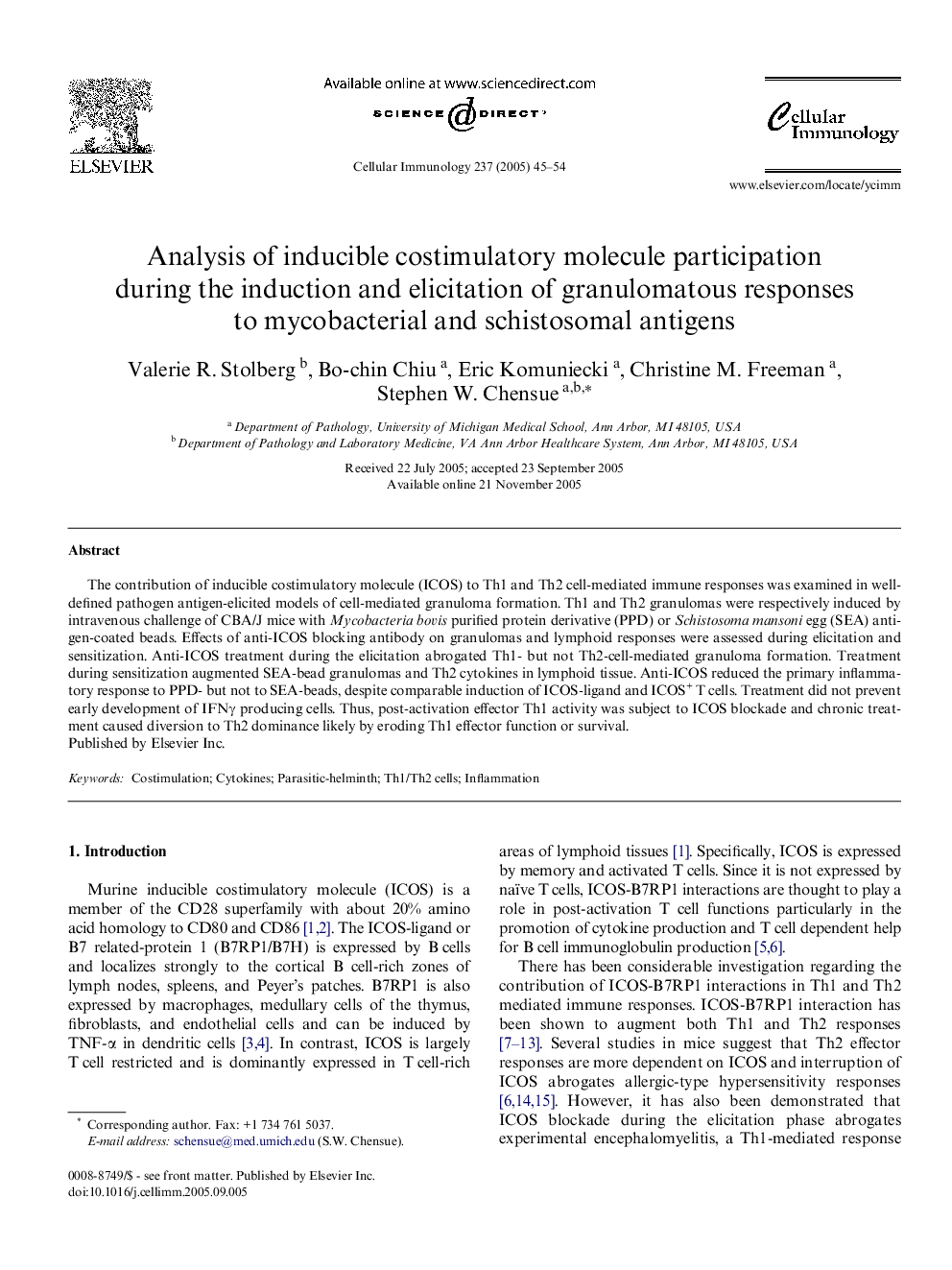| Article ID | Journal | Published Year | Pages | File Type |
|---|---|---|---|---|
| 10927126 | Cellular Immunology | 2005 | 10 Pages |
Abstract
The contribution of inducible costimulatory molecule (ICOS) to Th1 and Th2 cell-mediated immune responses was examined in well-defined pathogen antigen-elicited models of cell-mediated granuloma formation. Th1 and Th2 granulomas were respectively induced by intravenous challenge of CBA/J mice with Mycobacteria bovis purified protein derivative (PPD) or Schistosoma mansoni egg (SEA) antigen-coated beads. Effects of anti-ICOS blocking antibody on granulomas and lymphoid responses were assessed during elicitation and sensitization. Anti-ICOS treatment during the elicitation abrogated Th1- but not Th2-cell-mediated granuloma formation. Treatment during sensitization augmented SEA-bead granulomas and Th2 cytokines in lymphoid tissue. Anti-ICOS reduced the primary inflammatory response to PPD- but not to SEA-beads, despite comparable induction of ICOS-ligand and ICOS+ T cells. Treatment did not prevent early development of IFNγ producing cells. Thus, post-activation effector Th1 activity was subject to ICOS blockade and chronic treatment caused diversion to Th2 dominance likely by eroding Th1 effector function or survival.
Related Topics
Life Sciences
Biochemistry, Genetics and Molecular Biology
Cell Biology
Authors
Valerie R. Stolberg, Bo-chin Chiu, Eric Komuniecki, Christine M. Freeman, Stephen W. Chensue,
